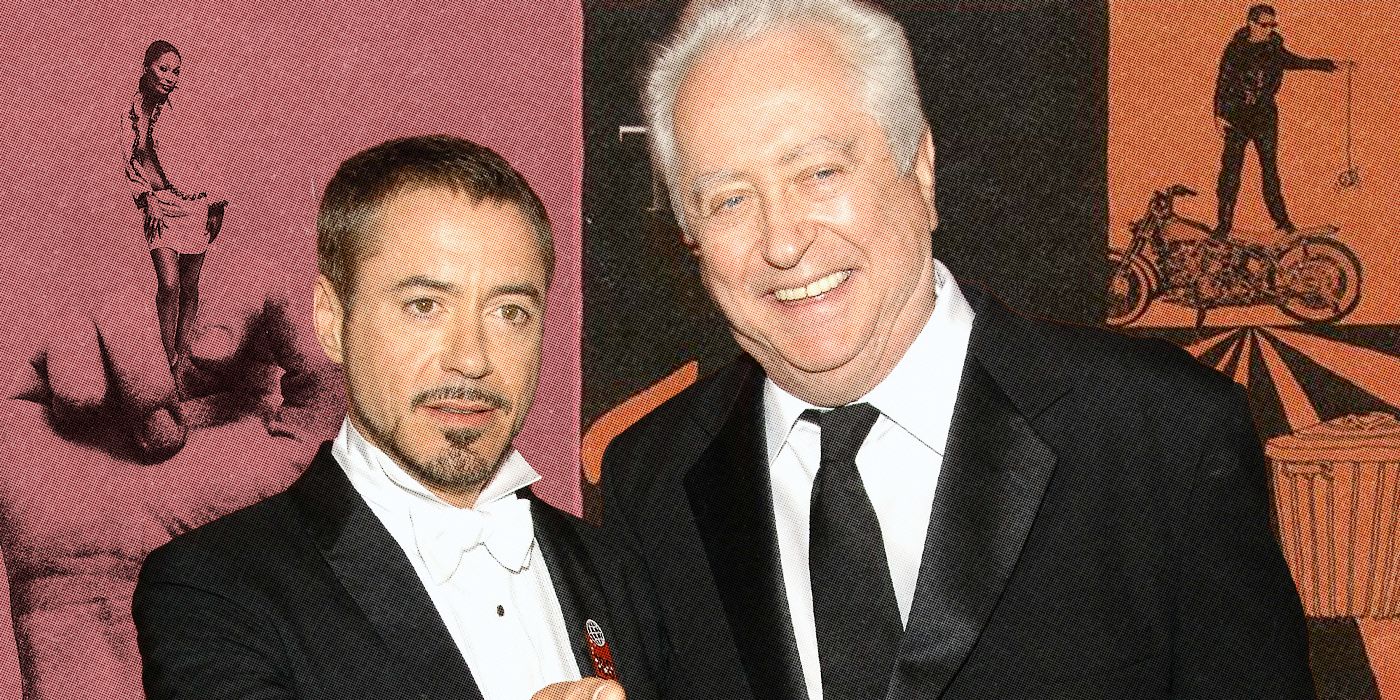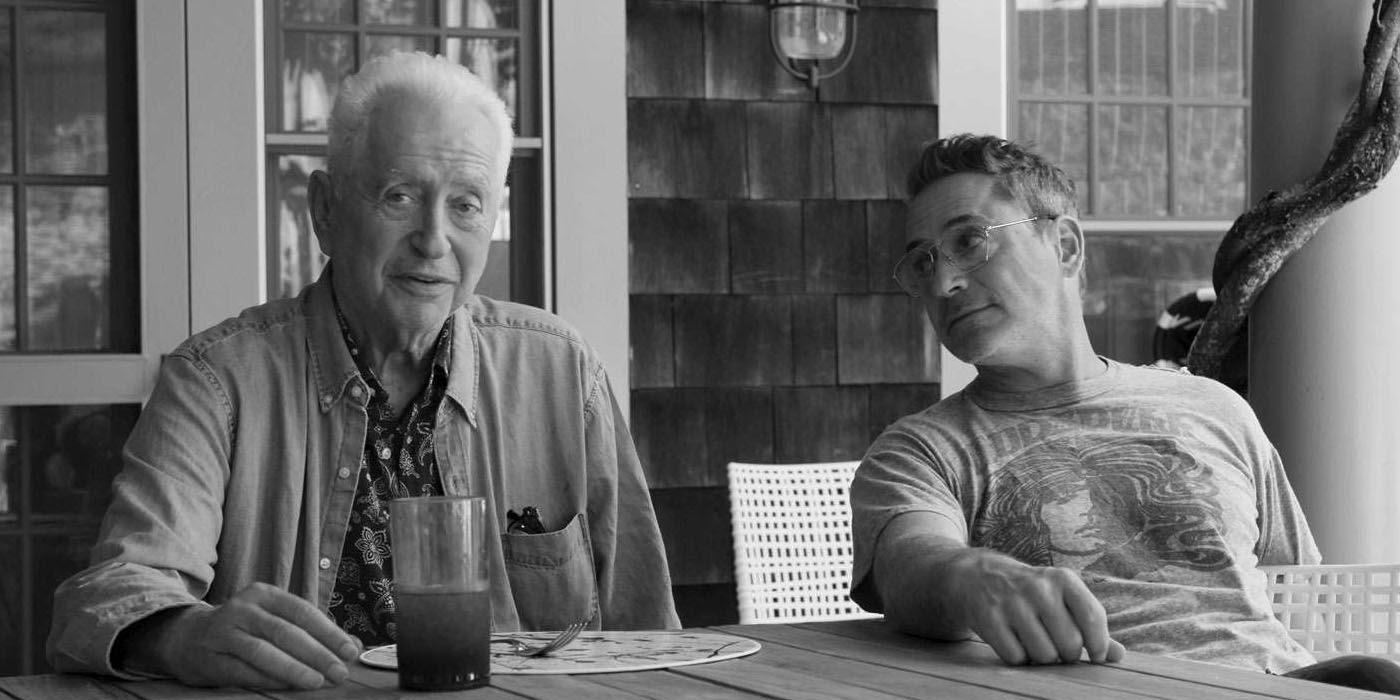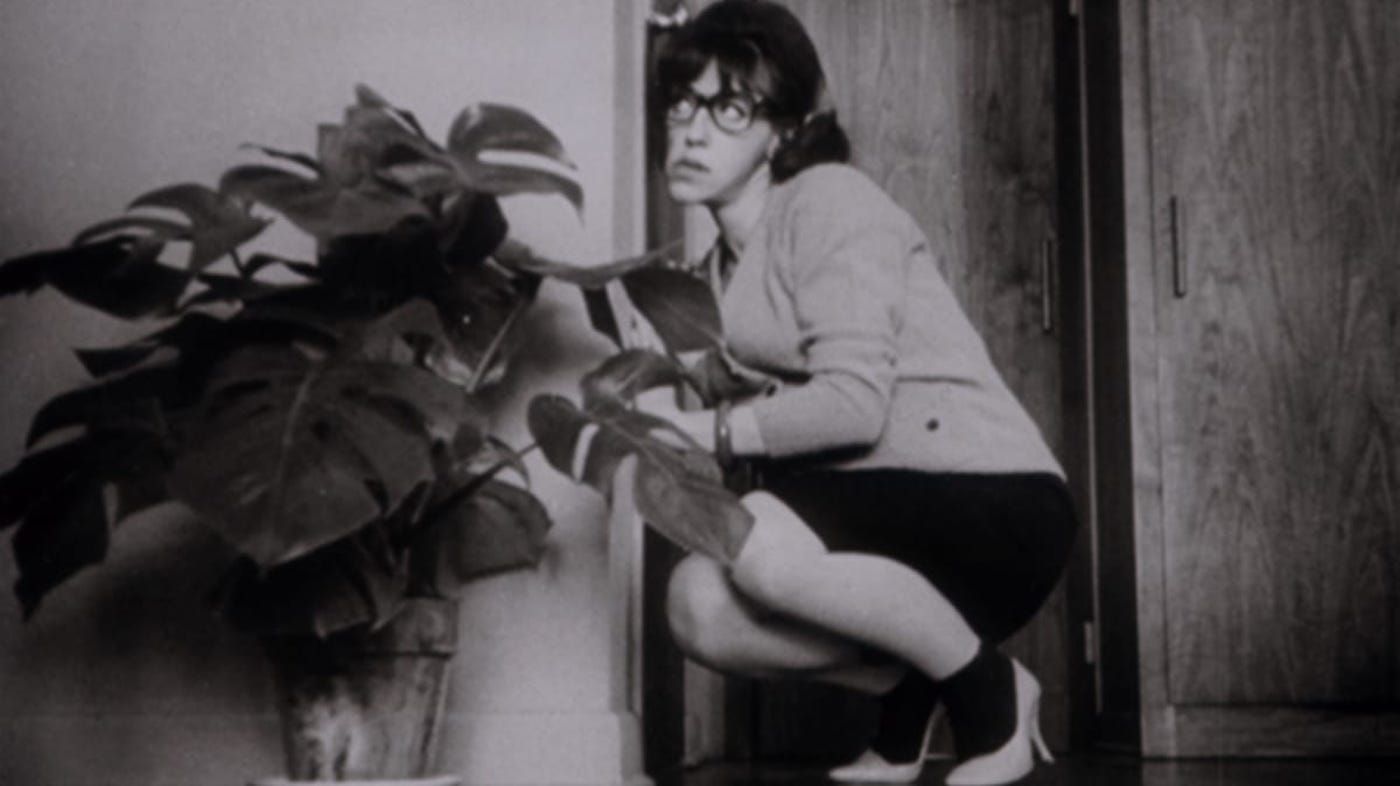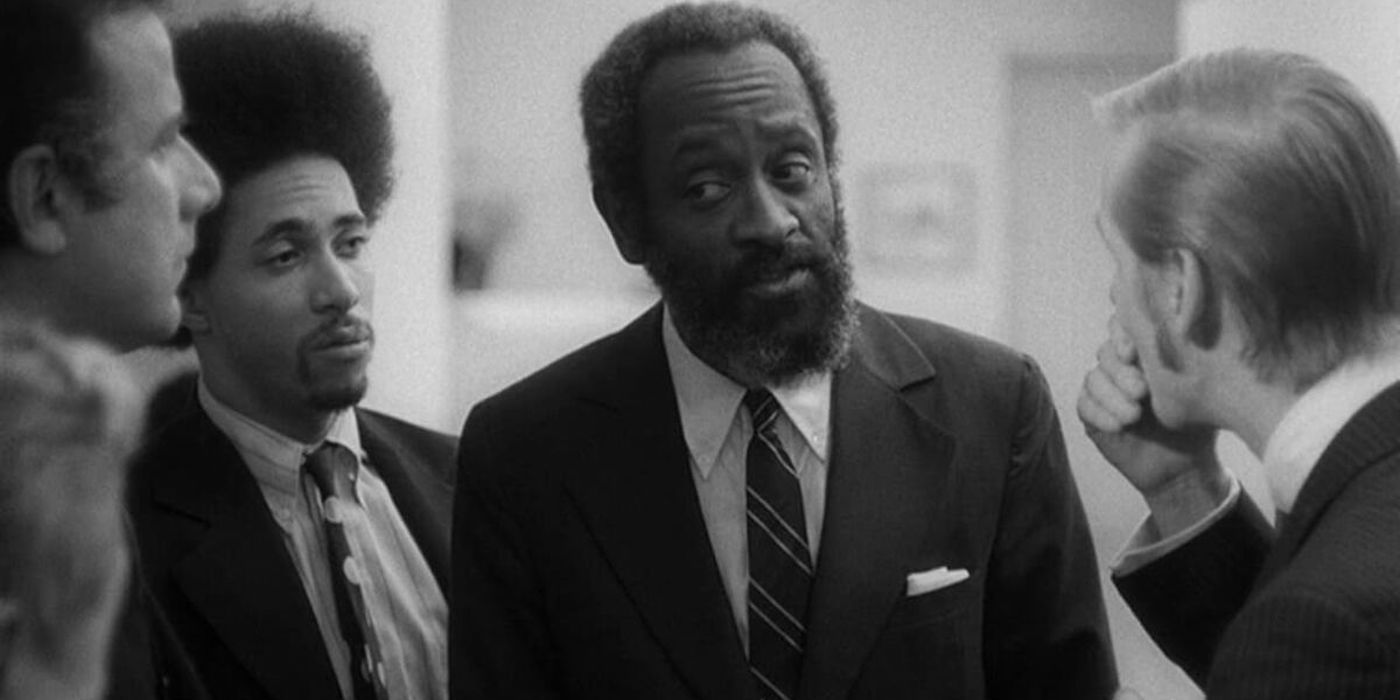Getting to watch a celebrity family interact is always interesting. These are typically figures that live a life in such a large spotlight that it can be pretty hard to relate to them. Famous figures' highs are so cartoonishly lavish that most audiences stand no chance of identifying with them, while their struggles seem small and insignificant as they stand atop mountains of money. Yet, for some reason, we still come back for more. While our lives may be different from figures living these extravagant existences basking in wealth and fame, not everything is so different. The human existence is one full of universal truths, one being that, eventually, we all have to let go of our family members and loved ones.
There is nothing from the year 2022 that better illustrates this than the film Sr., a documentary chronicling the final years of underground filmmaker Robert Downey Sr. and the ways that his son, Robert Downey Jr., processes this. For those that know next to nothing about Sr.'s filmography, this can be dually educational and inspiring all at once, likely to make audiences want to check out his eclectic and vivacious films. It's an emotional, weighty, touching experience that, even without a connection to these two, remains universally relatable - one everyone should endure.
A Tale of Two Robert Downeys
Sr. is a pretty simple documentary in terms of narrative. It isn't an ambitious film or anything. Audiences are basically just along for the ride to watch the Downeys hang out, goof around, and discuss both the good and the bad of their family history. At times, the movie can be flat-out hilarious! If you think Downey Jr. is goofy, here's who he learned it from, folks. Downey Sr. is effortlessly funny. He's constantly rattling off witty remarks and amusing sayings, it really adds up that this is the same guy that made all of those bizarre underground comedies back in the 60s. Jr. clearly worships his dad and holds great reverence for his work. He's beaming every time Sr. walks in the room, tells a joke, or recounts a humorous story from long ago. These scenes are beautiful, it's hard not to get wrapped up in them. With the subject matter at hand, the film obviously ends up venturing into more melancholy and downright heart-rending territory.
There are many scenes where Downey Jr. tries to discuss past mistakes and the way that his father brought him up, only for Sr. to postpone the conversation as it is too hard for him to talk about. Jr. clearly has spent a lifetime wondering what his dad's intentions may have been in introducing him to substances at an early age, but never quite gets the answers that he's hoping to find. Eventually, the film begins shifting into Sr.'s final days, and this is where the film drops its more "hangout" vibe and finds greater focus. Not to say that the film was messy before or anything, this is just when the film and those that inhabit it start asking big questions. It's a powerful and difficult bit of film to watch.
Never does Sr. lean too hard into the depressing aspects of those days (Jr. and co. had seen this coming for a long time), it just shows a family accepting this next phase of life as one door closes. Jr. seems healthily at peace pretty quickly after his father's passing, yet is more reflective than ever - we even see him working through this difficult period as he's on video chat with his therapist. One of the final things Downey Jr. has to say in the film is that "we're here, we do stuff, and we're gone. I love him for what he did and I love him for what he didn't do." It's an impactful moment that shows Jr. not only reflecting on Sr.'s legacy as an artist but much more importantly, on their relationship and the time they spent together as father and son.
Robert Downey Sr.'s Career Beginnings
Well, Robert Downey Sr. absolutely did a lot in his life, and he has the filmography to show for it. He was a prolific filmmaker from the early 60s to the mid-70s, just pumping out film after film, and eventually releasing films at a more ordinary pace moving into the 80s and 90s. At the beginning of his career as a filmmaker, he made strange experimental films that showed exclusively in New York City's art house theaters, eventually landing him a job making experimental commercials. This gave him plenty of experience and training on film sets, granting him the opportunity to move on to making feature films. Some bits of his early films, such as 1966's Chafed Elbows, have segments literally presented in still photography, as opposed to the *motion* aspect of motion pictures. But that's what Downey could afford at the time, and he went with it! His work is all the better for this, giving audiences both then and now a whole slew of unique film-viewing experiences. After Elbows, Downey would move on to No More Excuses, and then his most acclaimed film, 1969's Putney Swope.
Putney Swope
Putney Swope is a fascinating artifact of satirical cinema. It tells the story of Putney Swope (Arnold Johnson), who, after the sudden death of the board's chairman, becomes elected the new chairman and head of his business. The film begins with Swope acting as a more heroic figure, but as the film goes on, we see this position of power corrupt him, and he ends up just as careless and cutthroat as those that he replaced. It's almost even a plotless film! Once he becomes head of business, the rest of the film is basically spent watching Putney make deals with, steal ideas from, and fire both clients and employees of his one after the other. Its episodic nature makes it a breezy watch, throwing viewers into a new scenario every couple of minutes. Like Downey Sr. himself, the movie is ridiculously funny. It has a pretty sour sense of humor that is somewhat reminiscent of what South Park would end up being known for. Swope is aggressive, sarcastic, and biting, so it isn't for everyone, but if you're a fan of Kurt Vonnegut's voice in satire, as well as late 60s/early 70s underground comedies, this one will be a hit for you.
A Jump From Arthouse to Hollywood
After Putney Swope, Sr. moved on to make a couple more independent features, each garnering a bigger budget than the last. Films like Pound, Greaser's Palace, and Two Tons of Turquoise to Taos Tonight helped build his reputation not only in his home state of New York but around the country. Eventually, Sr. rode the train into Hollywood and began making films for the studio system. In doing so, he didn't quite have the creative freedom that he was guaranteed as an independent artist, making the quality of his films suffer in the process. Downey himself has voiced dissatisfaction with pictures like Up the Academy, namely with the studio pushing back on his particular brand of humor. But hey, I'm sure he had a decent couple of checks written out in his name, so good for him! These bigger studio pictures only helped spread the word about Robert Downey Sr. and his filmography, and that's a great thing. The guy gave us Putney Swope, a string of great films, and Robert Downey Jr. - cut the man some slack for getting paid to make some studio comedies, he deserved it.
Robert Downey Sr.'s Influence on Other Directors
Robert Downey Sr.'s influence can't be understated. His films would go on to influence The Coen Brothers, Jim Jarmusch, and especially Paul Thomas Anderson. Anderson would even have Sr. appear briefly in Boogie Nights as Burt, a studio manager. Sr. acted as a sort of mentor to PTA, with the 21st-century auteur even showing the underground 60s filmmaker early cuts of upcoming projects, well before release. For the longest time, his early films were difficult to track down and see, but thanks to both the works of Martin Scorsese and those at Criterion, many of Sr.'s movies have been found, restored and widely released. Downey Sr.'s ambition to make films in his own voice, no matter what, will always be inspiring. His passion for the medium is clear while watching any of his films, making them near impossible to downright dislike and worth celebrating by movie buffs who are looking to dive deep into a fascinating filmmaker's body of work. And for those who are unfamiliar with his work, Sr. stands tall as a bittersweet, wonderful piece of documentary filmmaking. I, myself, was mostly unfamiliar with his career before watching the documentary, but the figure at the center of Sr. and bits of his work presented seemed so fun that I knew I had to take a deep dive into his filmography - a place that you'll find one of the most lively, truly unique artists of his time.




